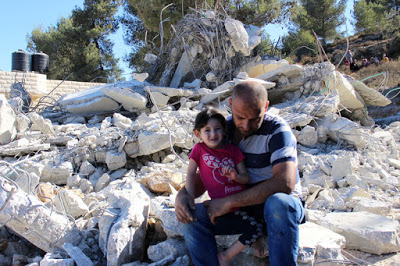Lobby pushes mental health group to hold Jerusalem event
 |
| Maureen Clare Murphy 18 October 2019 |
ENMESH, a European network of mental health researchers, is reportedly moving ahead with plans for a conference in Jerusalem, backtracking on a decision made this summer a to withdraw from the city.
Israeli media are describing the development as a “defeat” against the boycott, divestment and sanctions (BDS) movement in support of Palestinian rights.
Palestinian civil society has called for a boycott of Israeli academic institutions due to their role in Israel’s military occupation, settler-colony enterprise and weapons industry.
The Israeli proposal to hold ENMESH’s 2021 conference in Jerusalem was approved at the academic association’s biennial gathering in Lisbon this June but soon scrapped to avoid BDS protests.
“ENMESH has been sincere throughout in expressing its wish to host a conference in Israel,” the association stated in August.
“We were only ever concerned by practical considerations, given the very limited ability of an unfunded and informal academic network to manage the potential campaigning that such an event might attract.”
Israel lobby group intervenes
Jonathan Turner, head of UK Lawyers for Israel, intervened to reverse the decision to pull the conference from Jerusalem, according to Zvi Ziegler, who leads an association formed to “combat academic boycotts.” The matter was taken up by the UK House of Lords and the chair of ENMESH’s board was replaced, according to Ziegler’s account.
In June, the Israel Psychiatric Rehabilitation Association, the host of the Jerusalem conference, protested the initial pullout in a letter to ENMESH’s board.
The Israeli association stated that “campaigns to boycott Israel are failing,” adding that pulling the conference from Jerusalem would hurt those who would benefit from Israeli innovations in mental health treatments.
The group claimed that “those most affected will be our colleagues from the Palestinian organizations, as they participate less than their Israeli counterparts in international discourse.”
Widespread Palestinian trauma
The group does not elaborate in its letter, but one of the primary impediments to professional development experienced by Palestinian doctors is Israel’s regime of movement restrictions in the West Bank and Gaza Strip.
Israel’s permit regime isolates Palestinian academic institutions and prevents Palestinian scholars from participating in conferences and training abroad. It also restricts foreign academics from joining faculty at Palestinian universities.
The UN special rapporteur on the human rights situation in the West Bank and Gaza recently called for the removal of “unnecessary barriers that prevent Palestinian health care staff from acquiring professional training and specialization elsewhere in the occupied Palestinian territory and abroad.”
The Israeli association boasts in its letter that “we’ve developed state of the art interventions for post-traumatic treatment” but makes no mention of the widespread trauma Israel has inflicted on Palestinians living under siege and military occupation.
The Euro-Mediterranean Human Rights Monitor has estimated that more than half of all people in Gaza have experienced depression, attributing the high rate to the socioeconomic stresses resulting from Israel’s siege on the territory, now in its 12th year.
The current need for psychosocial support in Gaza is unprecedented. But groups providing such services in Gaza have been forced to cut back programs after the Trump administration in Washington slashed bilateral aid to the Palestinians, as well as its funding of UNRWA, the UN agency for Palestine refugees.
Israeli occupation forces killed five Palestinian healthcare workers in the West Bank and Gaza since early 2018.
“Nobody has been held to account for these attacks, and continuing impunity makes recurrence more likely,” Medical Aid for Palestinians stated earlier this month.


